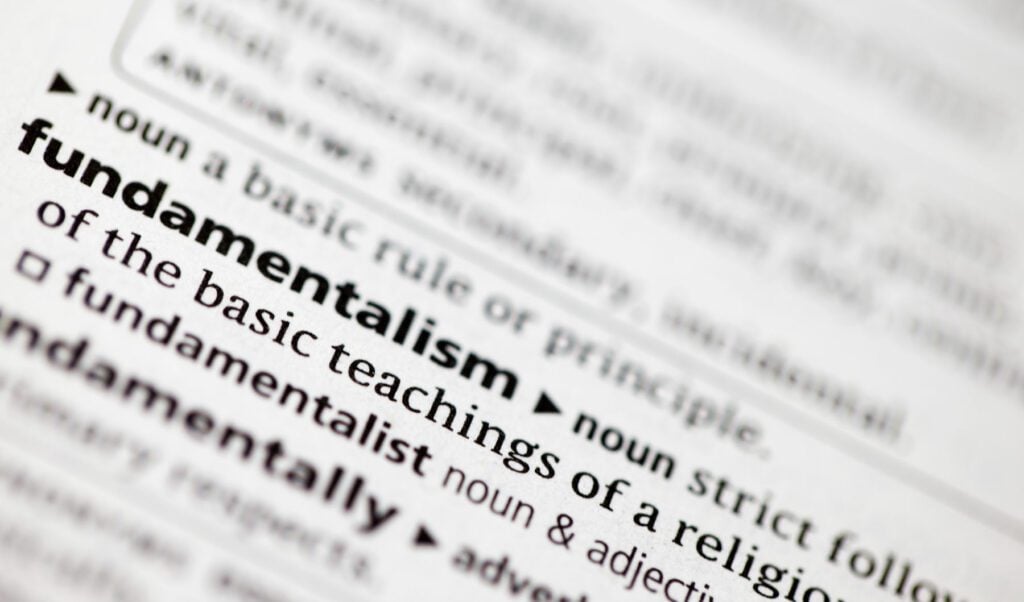Fundamentalism is a religious reaction to modernity in some ways. Fundamentalism first emerged in American Christianity in the early twentieth century, but it later came to refer to movements in other cultures as well. But did you know when and why the term was first used?
The term “fundamentalism” was coined in 1920 after 12 Evangelical protestant pamphlets titled “The Fundamentals: A Testimony to the Truth,” which argued that the Bible was God’s literal and inerrant word.
The Fundamentalism
In the early twentieth century, the term fundamentalist was used to describe some members of the Protestant community in the United States. These individuals had a set of clearly defined fundamental values. These values were diametrically opposed to more modern ideas. The group also stressed the importance of adhering to what their faith taught them. When people look at religion this way, they see its ideas as absolute. This implies that they are unable to change. Fundamentalism develops when religion is viewed as absolute.
The term is now used more broadly. Despite widespread criticism, it is now frequently used to describe groups of people who will adhere to their (primarily moral and religious) values. These values may be unpopular as well. Fundamentalists today want to return to the origins of certain ideological or religious positions.
Religious fundamentalism has been prevalent in society since its inception in the late nineteenth and early twentieth centuries. People who study fundamentalism today see it as a reaction to modern society. Today’s society is not as simple as it once was: many people live in complex organizations. Changes in routine can make people feel unsafe. As a result, some people look to their religion for something constant. They also want consistent rules for how to behave. As a result, they regard their religion as a constant. (Source: Kiddle)
History of Fundamentalism
Fundamentalism began as a movement in the United States, beginning in the first decade of the twentieth century among conservative Presbyterian academics and theologians at Princeton Theological Seminary. It quickly spread to conservative Baptists and other denominations during and immediately after World War I. The movement’s goal was to reaffirm orthodox Protestant Christianity and to zealously defend it against liberal theology, German higher criticism, Darwinism, and other movements that it saw as harmful to Christianity.
The term fundamentalism derives from the Niagara Bible Conference, which defined what was fundamental to Christian belief. The term was also applied to The Fundamentals, a set of twelve books on five subjects published in 1910 and funded by Milton and Lyman Stewart. (Source: Kiddle)
Why was the Term Disliked?
Some people dislike the term religious fundamentalists because it has other connotations. They oppose it because religious fundamentalists’ have negative feelings about it. Many people who identify as politically progressive or liberal dislike religious fundamentalists. They believe negative things about them, such as that they are stupid, uneducated, and do not respect people’s human rights.
Some Christian fundamentalists like that term and use it to identify themselves. However, they object to being labeled as religious fundamentalists because Islamic fundamentalists are included in this category. (Source: Kiddle)
Image from Islamicity
